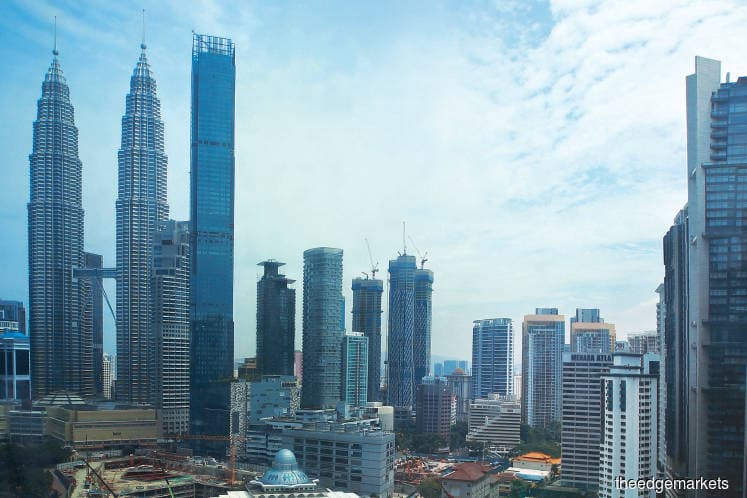
KUALA LUMPUR (June 18): Malaysia’s gross domestic product (GDP) growth is forecast to contract 4% this year and grow 6.5% in 2021, according to the Asian Development Bank’s (ADB) Asian Development Outlook 2020 (ADO 2020) Supplement in line with the region.
In the ADO released today, ADB said Southeast Asia had suffered broad declines in consumption, investment and trade.
It said the subregion’s economy is now expected to contract by 2.7% in 2020 before growing by 5.2% in 2021.
ADB said the more open economies of Malaysia, Singapore, Thailand, and Vietnam were hit by slumping global trade and demand.
It said in addition, tourist arrivals plunged in response to stringent travel restrictions and quarantine requirements, eviscerating the aviation, hospitality and retail industries.
The bank said growth in Malaysia fell to just 0.7% year-on-year (y-o-y) in the first quarter of 2020 (1Q20).
It said as the Covid-19 pandemic affected global supply chains in 1Q, exports of goods and services shrank by 7.1%.
It said investment also declined as public investment fell by 11.3% and private investment by 2.3%.
ADB said consumption remained a bright spot of the economy, growing by 6.5% as stronger public consumption offset weaker private consumption.
“However, with movement throughout the country restricted since March 18 to arrest the spread of Covid-19, domestic consumption is expected to contract in 2Q.
“External demand is likely to be similarly weak as trade partners continue to grapple with the effects of Covid-19. With the outlook having deteriorated since ADO 2020, the Malaysian economy is expected to contract by 4% in 2020 before recovering to a 6.5% growth in 2021,” it said.
Meanwhile, its inflation forecasts for Southeast Asia were revised down to 1% in 2020 and adjusted slightly up to 2.3% in 2021.
ADB said global oil prices had caused domestic fuel and energy prices to slump, particularly in Malaysia, Singapore, Thailand and Vietnam.
It said Malaysia slipped into deflation in April 2020, mired mainly by a huge drop in transportation cost brought about by plummeting petrol prices.
“With oil prices likely to remain low, Malaysia is expected to experience deflation at 1.5% in 2020 before crossing back to inflation at 2.5% in 2021,” it said.